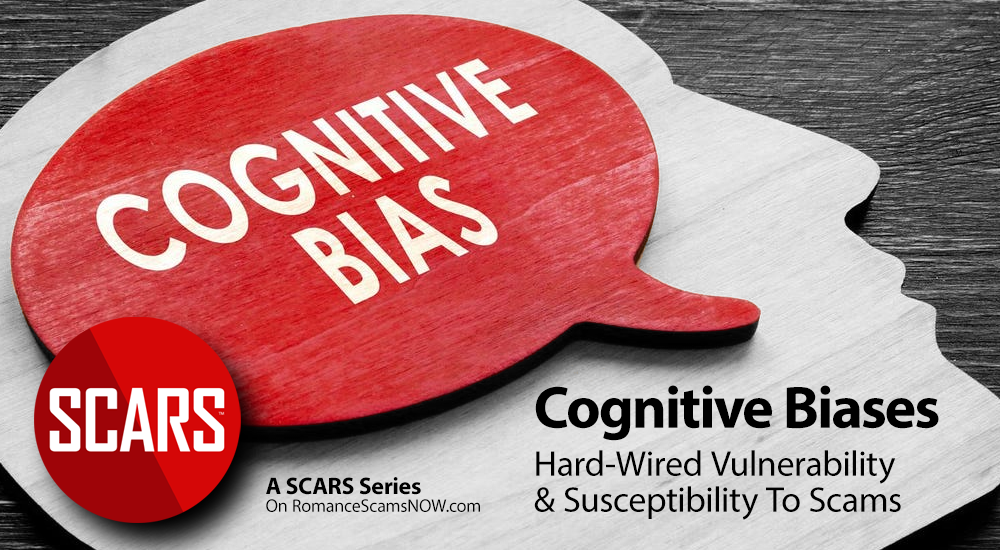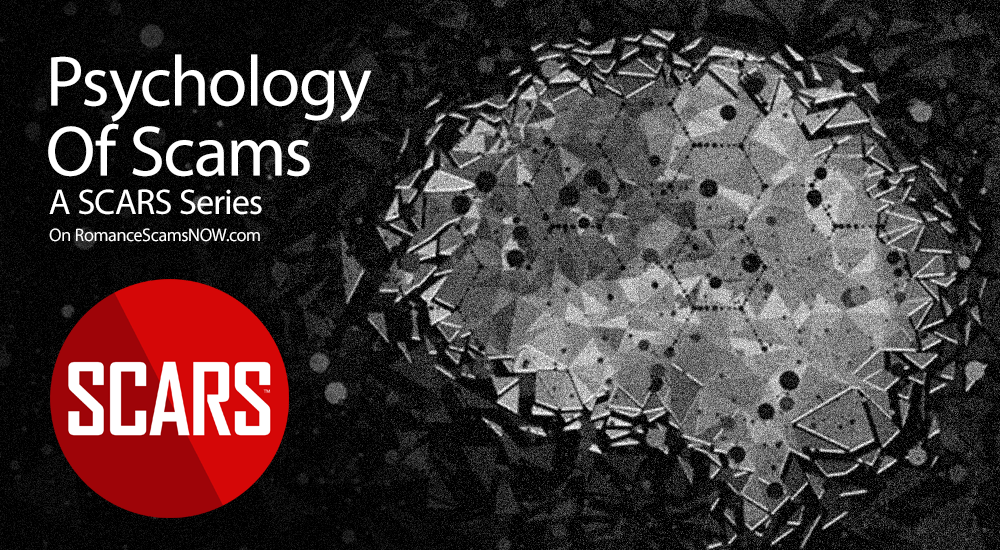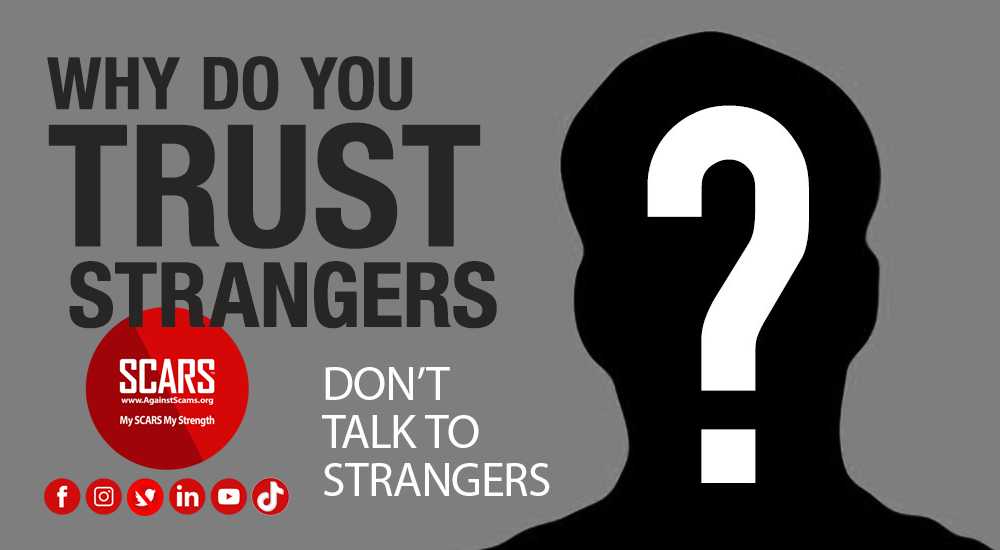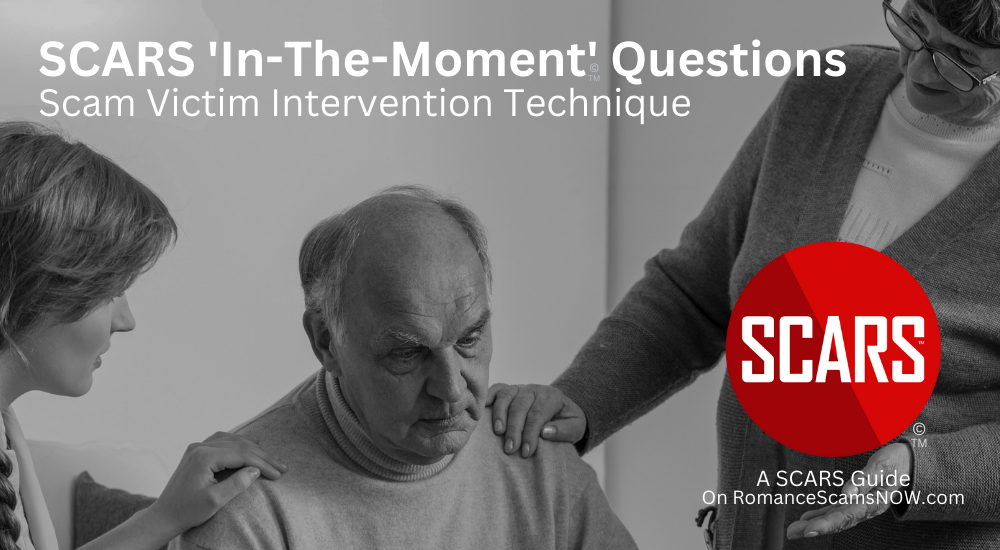Proximity Bias – Another Cognitive Bias
This article is about Proximity Bias, a part of SCARS continuing commitment to helping the victims of scams (financial fraud) to better understand the psychology of scams. In other words, why are victims vulnerable?
How Do Cognitive Biases Make People Vulnerable To Scams, Fraud, and Deception
How do cognitive biases play a role in making people vulnerable and susceptible to scams, fraud, and deception?
Cognitive biases are mental shortcuts that allow people to make quick decisions and judgments based on their past experiences and memories. These biases can be helpful in many situations, as they allow people to process large amounts of information quickly and efficiently. However, they can also make people vulnerable to scams, fraud, and deception.
One reason why cognitive biases make people vulnerable to scams is that they can lead people to make judgments that are not based on evidence or logical reasoning. For example, Confirmation Bias (a major bias that makes people vulnerable) is the tendency to seek out and interpret information that supports one’s preexisting beliefs, while ignoring or dismissing information that contradicts them. This can make people more susceptible to scams that appeal to their beliefs or biases, as they are more likely to believe the scammer’s claims without critically evaluating the evidence.
There are several ways that people can protect themselves from scams, fraud, and deception. One way is to be aware of common cognitive biases and how they can affect decision-making. This can help people to be more mindful of their thought processes and to question their own judgments.
Another way to protect oneself is to be skeptical of claims and offers that seem too good to be true. It is important to carefully evaluate the evidence and to ask questions before making a decision. This can help people to avoid falling for scams that rely on emotional appeals or incomplete information.
It can also be helpful to seek out additional sources of information and to consult with trusted friends, family members, or professionals before making a decision. This can provide a more balanced perspective and help to identify any potential red flags.
Overall, cognitive biases can make people vulnerable to scams, fraud, and deception by leading them to make judgments that are not based on evidence or logical reasoning, and by causing them to make irrational or risky decisions. However, by being aware of these biases and taking steps to protect oneself, people can reduce their risk of falling victim to these types of scams.
Proximity Bias
Proximity bias, also known as geographic bias or the proximity effect, refers to the cognitive bias that affects our perception and decision-making based on proximity or physical distance. It occurs when individuals give more importance or favor to people, objects, or events that are closer to them in physical space.
Proximity Bias is actually a tactic used by relationship scammers to persuade their victims to drop their barriers and skepticism. If victims believe the person they are talking to is local, regardless of where they are, they are much more likely to begin contact with this stranger. On the other hand, if the person online admits they are from Africa there are automatic responses that are thrown up by the prospective victim.
Of course, it all depends on the desires of the prospective victim since this will also affect how influential the proximity bias is in their decision making,
Here are a few key aspects of proximity bias:
- Emotional impact: Proximity bias suggests that individuals tend to feel a stronger emotional connection or attachment to people or situations that are physically closer to them. This bias can influence our perceptions, attitudes, and decision-making processes.
- Accessibility and availability: Proximity bias can be driven by the ease of access and availability of information or resources related to nearby individuals or events. We are more likely to be familiar with and have direct experience with people or situations that are in close proximity, which can influence our judgments and preferences. Even if a person does not know the other person, the familiarity with the place they are in or from influences the victim.
- Selective attention: Proximity bias can affect our attention and focus, leading us to prioritize or notice things that are physically closer to us. We may be more likely to pay attention to and remember information about people or events in our immediate environment while neglecting or underestimating those that are farther away. But it can also have the opposite effect, in that we can ignore things we think we know about a place we think we are familiar with (this brings in Confirmation Bias as well.)
- Perceived relevance and importance: The physical proximity of individuals or events can create a perception of relevance and importance. We may assign more significance to nearby people or situations, considering them as more impactful or meaningful compared to those that are distant.
- Influence on social relationships: Proximity bias can affect our social interactions and relationships. People who are geographically closer to us, such as neighbors or colleagues, may be more likely to become our friends or acquaintances simply due to their proximity. This bias can impact our social networks and the diversity of perspectives we encounter. This is in part why scammers pretend to be someone local.
Proximity Bias And Relationships
Proximity bias can play a role in relationship scams by exploiting the emotional impact and trust associated with physical proximity. Here’s how proximity bias can be manipulated in relationship scams:
- Trust and familiarity: Scammers may take advantage of the trust and familiarity that proximity provides. They might claim to be physically close to the victim, such as living in the same city or neighborhood, to create a sense of connection and shared experiences. By leveraging the perception of physical proximity, scammers aim to establish trust more easily.
- Emotional manipulation: Proximity bias can intensify emotional bonds and make individuals more susceptible to manipulation. Scammers may exploit this bias by portraying themselves as someone who is physically near the victim, generating a false sense of closeness and intimacy. They may use this emotional leverage to extract personal information, financial assistance, or engage in other fraudulent activities.
- Verification and credibility: Proximity bias can influence a victim’s perception of credibility and authenticity. Scammers may claim to have a mutual acquaintance or reference in the victim’s local area, further reinforcing the perception of proximity and legitimacy. This can make the victim more inclined to trust the scammer’s intentions and information without exercising due diligence.
- Assistance and urgency: Scammers may exploit proximity bias by posing as someone in immediate need of help. For example, they might claim to be a local resident who has encountered an emergency or financial crisis while traveling. The perceived proximity can create a sense of urgency and sympathy in the victim, making them more likely to offer assistance or financial support without thorough verification.
- Limited accountability: Physical distance can provide scammers with a sense of anonymity and reduced accountability. By claiming to be in close proximity to the victim, scammers may exploit the challenge of verifying their true identity and intentions. This can make it more difficult for victims to identify red flags or conduct proper investigations, as they may assume that the scammer’s proximity implies authenticity.
Watch Out
It’s crucial to remain cautious and skeptical when engaging in online relationships, especially with individuals who exploit proximity bias. Take steps to verify the identity and intentions of individuals you interact with online, regardless of their claimed proximity.
It’s important to be aware of proximity bias and its potential influence on our judgments and decision-making processes. By recognizing this bias, we can strive to make more objective and fair evaluations, considering factors beyond physical distance when assessing the relevance, importance, and value of people, events, or information.
Summary
Cognitive biases do make people more vulnerable to scams, fraud, and deception by causing them to ignore warning signs, pay more attention to information that supports their preexisting beliefs, rely on incomplete information, and anchor their decisions to easy and often incorrect information.
By being aware of these biases and making an effort to overcome them, people can be better equipped to avoid falling victim to scams and other forms of deception.
-/ 30 /-
What do you think about this?
Please share your thoughts in a comment below!
Do You Need Support?
Get It Now!
SCARS provides the leading Support & Recovery program for relationship scam victims – completely FREE!
Our managed peer support groups allow victims to talk to other survivors and recover in the most experienced environment possible, for as long as they need. Recovery takes as long as it takes – we put no limits on our support!
SCARS is the most trusted support & education provider in the world. Our team is certified in trauma-informed care, grief counseling, and so much more!
To apply to join our groups visit support.AgainstScams.org
We also offer separate support groups for family & friends too.
Become a
SCARS STAR™ Member
SCARS offers memberships in our STAR program, which includes many benefits for a very low annual membership fee!
SCARS STAR Membership benefits include:
- FREE Counseling or Therapy Benefit from our partner BetterHelp.com
- Exclusive members-only content & publications
- Discounts on SCARS Self-Help Books Save
- And more!
To learn more about the SCARS STAR Membership visit membership.AgainstScams.org
To become a SCARS STAR Member right now visit join.AgainstScams.org
To Learn More Also Look At Our Article Catalogs
Scam & Crime Types
More SCARS
- ScamsNOW Magazine – ScamsNOW.com
- ContraEstafas.org
- ScammerPhotos.com
- AnyScam.com – reporting
- AgainstScams.org – SCARS Corporate Website
- SCARS YouTube Video Channel

















![An Example of How Scammers Use Emergency Scams - 2014 [UPDATED 2024] - on SCARS RomanceScamsNOW.com](https://romancescamsnow.com/wp-content/uploads/2014/06/emergency-scams.png)

Please Leave A Comment - Tell Us What You Think About This!